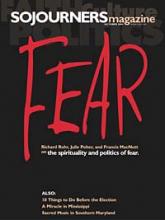Agnes Cunningham died at the end of June, at age 95. She was the accordion player for the Almanac Singers, a Depression-era folk group that also included Pete Seeger and Woody Guthrie. Later she and her husband started the folk music magazine Broadside, which published lyrics by Bob Dylan before he had a record deal. Like Guthrie, Cunningham was from Oklahoma. Her family really did lose its farm in the Dust Bowl. And she was radicalized by attending Commonwealth College in Arkansas, an institution started by the organizers of the Southern Tenant Farmers Union.
I must confess that when a sharp-eyed Sojourners editor passed on the news of Cunninghams death to me, I was mostly surprised to learn that anyone besides the apparently immortal Seeger was still alive from that scene in which rural culture and radical politics merged. Today it seems like something that happened on another planet.
"Once a way of life gave rise to a type of music," wrote Arkansan Johnny Cash in his autobiography. Today, Cash continued, "a type of music gives rise to a way of life." The "way of life" Cash was talking about was the one his family, and Agnes Cunninghams, lived in the rural South where they labored side by side in the fields with black neighbors, and everyone listened to the Grand Ole Opry on Saturday night and went to church on Sunday morning. The type of music that emerged from that way of life was hillbilly, blues, and gospel thrown into a blender.
Read the Full Article
